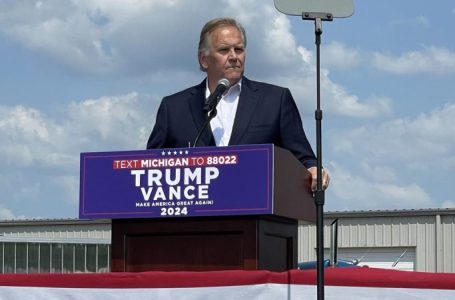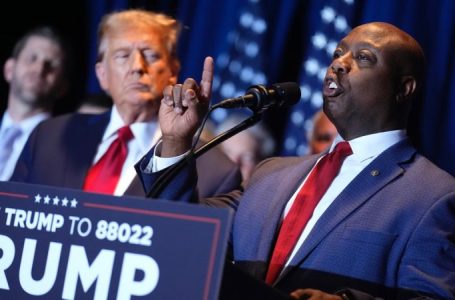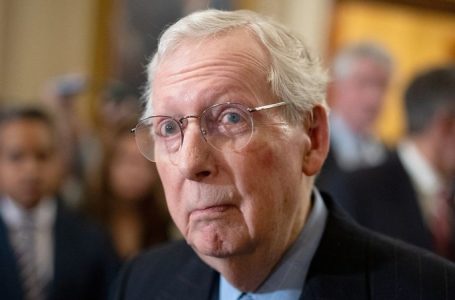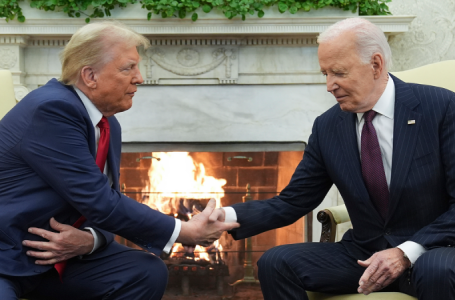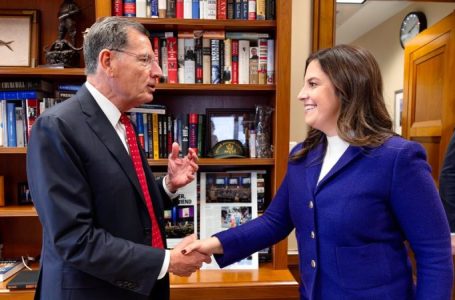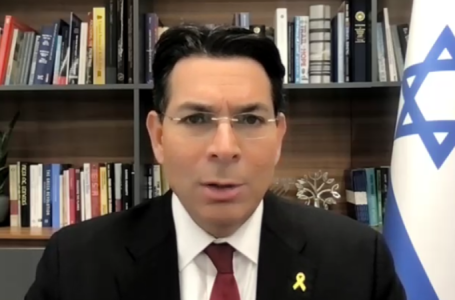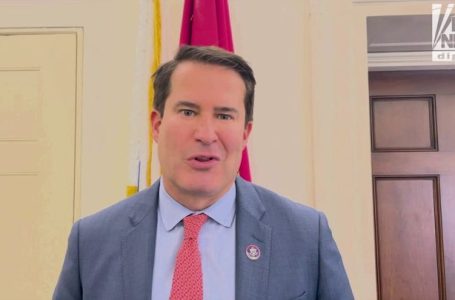Mike Rogers replacing Wray as FBI director is not happening, Trump adviser says
October Fests: A potpourri of late election-year ‘surprises’ shake up most races, history shows
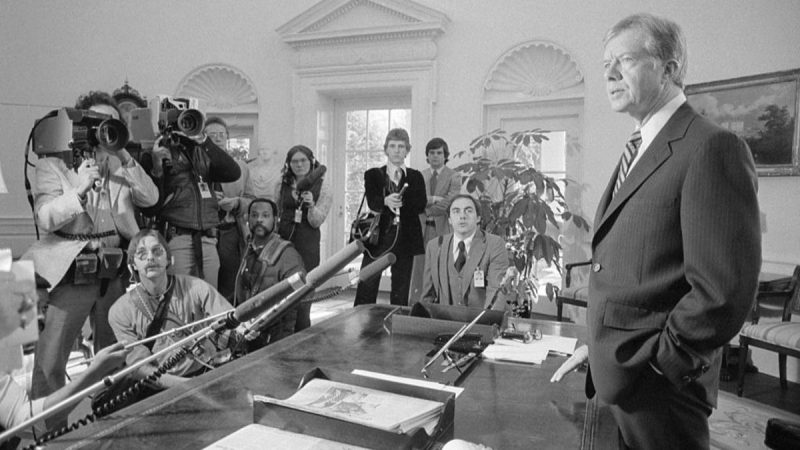
The term ‘October surprise’ – denoting an unexpected plot twist late in an election cycle that typically throws a wrench in prognostications – first entered the U.S. lexicon in 1980.
1980s
During that contest between Georgia Gov. Jimmy Carter and former California Gov. Ronald Reagan, Reagan was cognizant that a sudden release of 52 hostages in Iran could boost his opponent’s campaign.
To that time, Carter’s term was marked by long-term economic ‘malaise,’ foreign policy stumbles like the hostage crisis and other concerns.
Reagan’s campaign manager, former SEC Chairman William Casey, warned that Carter might be planning such an ‘October surprise’ and urged allies in the intelligence community to alert them to any premonitions of a hostage release.
Ultimately, no ‘surprise’ ever occurred, and Iran’s Ayatollah Ruhollah Khomenei instead released the hostages after 444 days in captivity on the date Reagan was inaugurated in 1981, instead giving Republicans positive fodder.
As far as October surprises go, Reagan’s 1984 reelection campaign against former Vice President Fritz Mondale was quiet. The Republican went on to win a record 49 states, excluding Mondale’s Minnesota.
The same could be said for 1988, as Massachusetts Gov. Michael Dukakis’ campaign appeared to flounder – particularly after he was mocked for wearing an oversized helmet while sitting on a tank in an ad.
If there had been a surprise, however, things may have been different far into the long-term, as Dukakis waxed during a 2008 interview that if he had ‘beaten the old man’ – then-Vice President George H.W. Bush – ‘we’d never heard of the kid, and we’d be in a lot better shape these days; so it’s all my fault.’
1990s
From 1988 to 2016 – except 2012 – a Clinton or a Bush had been a major party candidate in every cycle, and all but once the nominee.
In 1992, Iran returned to the campaign scene, as on Oct. 30, four days before the election, Reagan’s former Pentagon chief, Caspar Weinberger, was indicted for attempting to cover up Iran-Contra.
Bush the elder was vice president during that scandal, which surrounded allegations that the U.S. had funded Nicaraguan rebels known as ‘La Contrarrevolución’ with funds from arms sales to Tehran.
That December, Washington, D.C., federal Judge Thomas Hogan threw the case out on statute-of-limitations grounds. Bush later pardoned Weinberger.
After the 1992 October surprise, Bush was upset by Arkansas Democratic Gov. Bill Clinton. The candidacy of Texas billionaire businessman H. Ross Perot also contributed to Bush’s loss.
Following a relatively quiet 1996 cycle, the 2000 race between Bush the younger and then-Vice President Al Gore was marred by its own October surprise.
2000s
During the last week of the campaign, a report surfaced claiming that Bush had been arrested for DUI in Maine in 1976.
Bush ultimately confirmed he had been taken into custody after consuming beer at a Kennebunkport bar over Labor Day weekend that year, when he was 30 years old.
‘It’s an accurate story. I’m not proud of that… I admitted to the policeman I’d been drinking… I learned my lesson,’ Bush said at a Wisconsin rally.
Karl Rove, a top Bush aide who is now a Fox News contributor, suggested at the time that the October surprise may have cost his boss the popular vote in a handful of states.
Ultimately, Bush won – in one of the most closely-contested elections until the 2020 bout between former President Donald Trump and now-President Joe Biden.
Florida officials toiled over ‘hanging chads’ on paper ballots, while Republican consultant Roger Stone and then-Rep. John Sweeney, R-N.Y. – whom Bush later dubbed ‘Congressman Kick-Ass’ – were credited with staging the ‘Brooks Brothers Riot’ of dapper demonstrators at Miami-Dade’s election office.
In 2004, just before the election, Usama bin Laden was seen on video taking responsibility for 9/11 and calling Bush a dictator for his use of the Patriot Act. Then-Sen. John Kerry, D-Mass., cited the video after his loss for bringing terrorism to the fore once again.
Wall Street powerhouse Lehman Brothers imploded in September 2008, and a recession of the likes not seen since 1929 enveloped the country, leaving Bush – and, by extension, Republican nominee Sen. John McCain of Arizona – with the blame. Disgraced CEO Dick Fuld was dragged before Congress.
And it was the charisma of then-Sen. Barack Obama, D-Ill., combined with slogans like ‘Hope,’ ‘Change’ and ‘Yes We Can’ that galvanized the youth vote. This surge of enthusiasm, set against the backdrop of the financial crisis – a major October surprise – is what undermined Republicans’ chances.
2010s
During the 2012 cycle, it was a Republican who was blamed for an October surprise that doomed the GOP nominee.
After Hurricane Sandy devastated the northeast, New Jersey Gov. Chris Christie publicly gushed about Obama’s efforts during the recovery and was criticized for the warm reception he gave Obama, which purportedly translated into a last-minute boost for the incumbent.
Christie has long denied ever hugging Obama, as critics have claimed, calling it the ‘old, ‘nobody ever saw it because it didn’t happen’ hug’.’
At a 2016 town hall in Sussex, N.J., Christie questioned critics who still bring up the alleged chumminess, asking, ‘what would you have me do, exactly . . . say, ‘No, I’m for Mitt Romney, I don’t want you to come’ – or would you rather me wear my Romney sweatshirt while I was walking around with him – this is ridiculous stuff.’
In 2016, after originally declining to recommend that the Department of Justice prosecute Hillary Clinton that July for mishandling classified materials, FBI Director James Comey announced just days before the election that he was reexamining the Democratic nominee’s email saga.
Emails pertinent to the probe were suddenly found on New York Rep. Anthony Weiner’s computer. At the time, Weiner, a Democrat, was the estranged husband of Clinton confidante Huma Abedin.
Clinton narrowly lost several swing states and Trump commanded an upset to become the first non-politician or non-military officer elected president.
That victory came despite another October surprise that year – as a tape of Trump bragging to TV host and presidential cousin Billy Bush about being able to ‘grab’ women by their genitalia undeterred, sent shockwaves through the media.
2020s
A major October surprise occurred in 2020, when the New York Post broke the story surrounding the mixture of obscene imagery and documentation of foreign business dealings found on Hunter Biden’s laptop – after it was left at a Wilmington repair shop.
Social media organizations allegedly sought to stifle the ‘surprise,’ and a consortium of intelligence officials attested in a heavily critiqued letter that the report was Russian propaganda.
The story was later confirmed to be accurate, though it came months after Joe Biden had upset Trump.
While not in October, Democrats faced a political earthquake in July when Joe Biden – following a widely mocked debate performance – decided against continuing his reelection bid, and the party chose Vice President Kamala Harris to take his place.
With an already contentious election cycle in 2024, it remains to be seen whether a major October surprise will reveal itself, or whether Americans will look back on an event that has already happened this month and deem it the quadrennial shocker.
Fox News’ Leonard Balducci contributed to this report.
